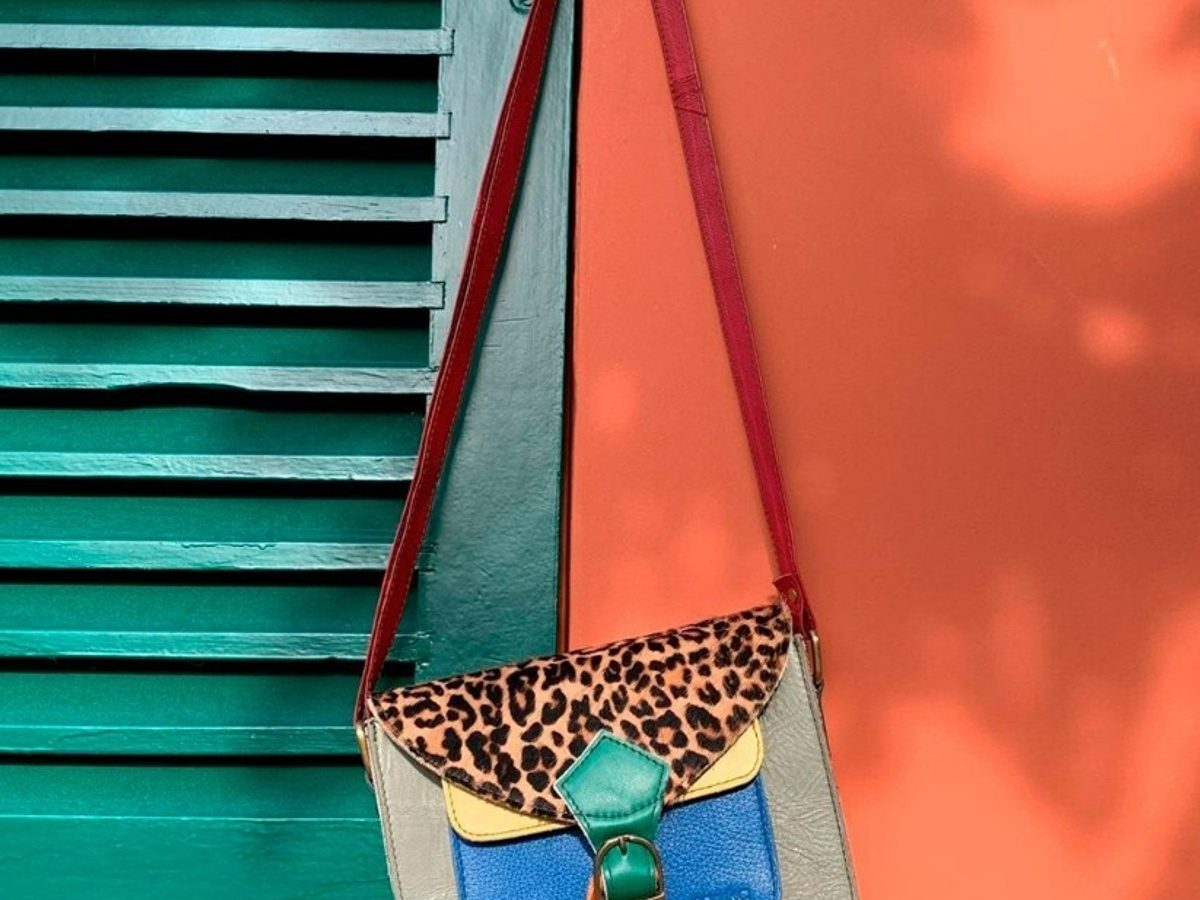The production is conducted in India, employing small, independent artisans from rural communities. The brand works closely with them to help grow their businesses and production capabilities. This not only creates jobs in rural environments, but also preserves generational craftsmanship. The brand personally ensures that all artisans are over the age of 18 and receive fair living wages to support themselves and their families. This would also later keep them from migrating to urban areas, creating a multitude of indirect positive effects.
Soruka uses exclusively deadstock leather, which is naturally a biodegradable material. The brand also upcycles using no chemicals. However, as it is deadstock, the brand has no insight into what chemicals went into the leather previously, which might make them toxic and/or difficult to recycle or biodegrade at the end of the consumer’s use.
The manufacturing process which is conducted individually by artisans uses little to no machinery, which keeps energy consumption low.
All that being said, the brand does not mention packaging material or transportation methods.
The brand only uses monomaterial leather, which makes each piece easily recyclable at the end of use. They also use deadstock leather, which gives the leather a new life and keeps it in use for longer until its next stage or recycling or biodegradation. Aside from this, they do not have any system in place for repair or recycling to contribute to the brand’s circularity.
Soruka is located in Barcelona, but conducts production in India. The leather is also sourced from India, which makes it within closer vicinity of the production locations, reducing those transport emissions. While this increases the length of the supply chain from Europe to India, this is unavoidable due to the brand’s desire to contribute to the social economy and cultural heritage of India. They also only keep the production and sourcing to one location rather than multiple like other brands. The brand, however, does not mention transportation methods, which makes it hard to determine the emissions caused by transportation within the supply chain.
The brand only uses deadstock leather, which means we cannot trace the source of the leather and verify the ethical treatment of animals. However, it also assures us that no additional animal cruelty was conducted in the creation of these products.
Each piece is handmade by artisans, using scraps of deadstock leather. Leather itself is a sturdy material that lasts ages and is easily repairable, additionally the time and effort taken by artisans on each bag makes each piece unique and timeless, and ensures that they will last generations. They also provide care tips for the consumers to make sure their leather products don’t come to harm before their usability is up.
This brand provides a lot of transparency regarding its materials and production, but can go a step further be providing more narrowed down locations of the artisans rather than just the name of the country. They can also provide more information regarding the tier 3 and 4 facilities, so we can track where the leather comes from and whether it is from an ethical source. They also do not mention packaging materials or transportation methods.
Conclusion
We at COSH! really appreciate the brand Soruka and its dedication to sustainability and improving social economies. Find out where to shop their with COSH!










